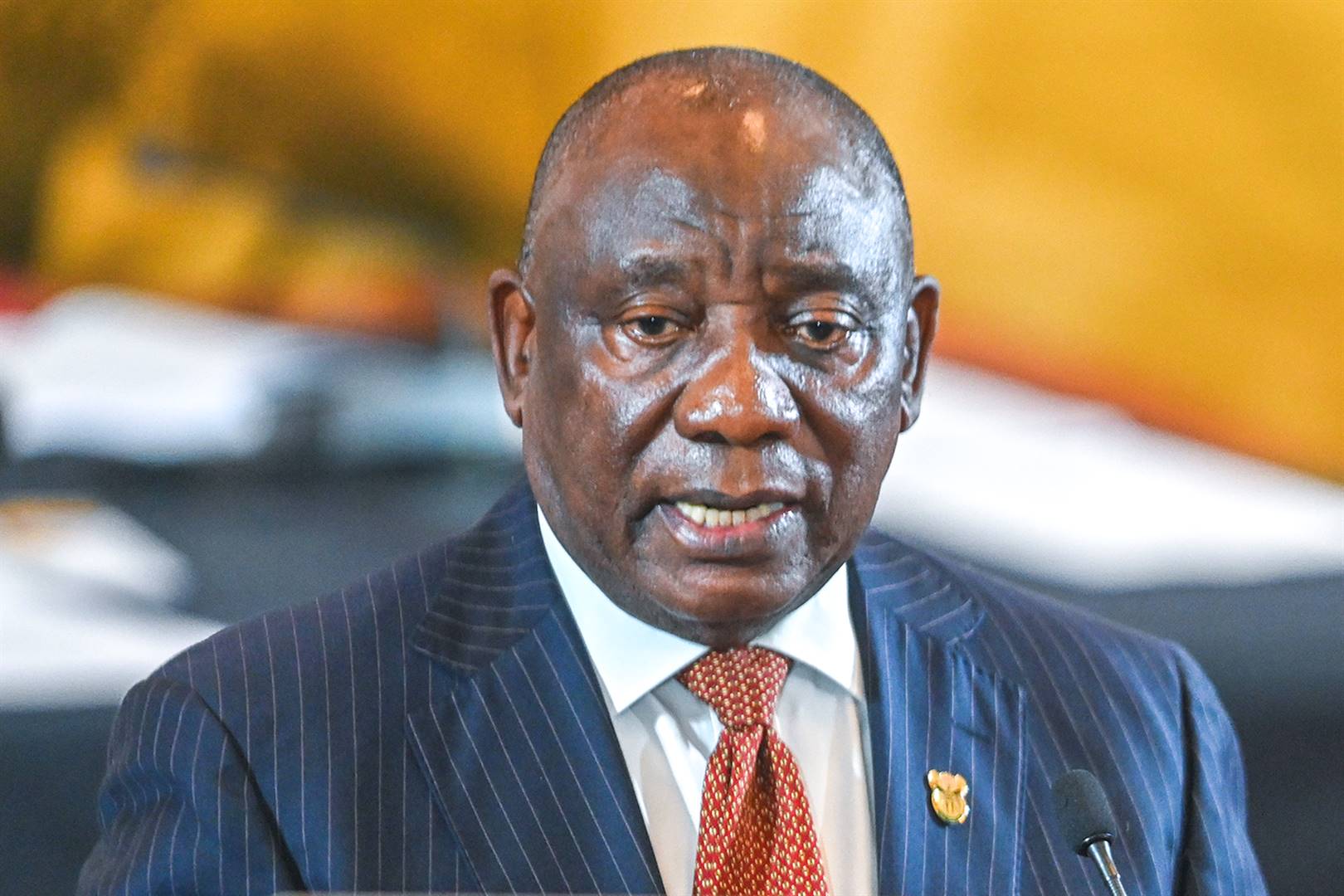President Cyril Ramaphosa has called for a fair distribution of mpox treatment to African countries. (Jaco Marais/Die Burger/Netwerk24)
- President Cyril Ramaphosa has urged the international community, partners, and organisations to release stockpiles of mpox vaccines and other medical counter-measures for deployment to Africa.
- To date, 2 822 cases of mpox have been confirmed, 517 deaths have been reported and there are 14 719 suspected cases in 13 African Union member states.
- On 14 August, the World Health Organisation declared mpox, which broke out in 2022, a public health emergency of international concern.
President Cyril Ramaphosa has called for the distribution of mpox vaccinations to be fair, transparent, and equitable as the illness spreads through African countries, instead of being hogged by Western nations.
In a statement on Saturday, Ramaphosa, as the AU Champion on Pandemic Prevention, Preparedness and Response (PPPR), said he was “deeply concerned by the rapid spread of mpox” across many AU regions.
He urged the international community, partners, and organisations to release stockpiles of vaccines and other medical counter-measures for deployment to Africa.
Ramaphosa said in the statement that to date, 2 822 cases of mpox have been confirmed, 517 deaths have been reported and there are 14 719 suspected cases in 13 African Union member states.
He added:
This week, [three] additional countries notified cases under investigation for confirmation. That can bring the total to 16 countries. Alarmingly, the number of reported cases in 2024 has surged by 160% compared to the same period in 2023.
According to a National Institute for Communicable Diseases update on 14 August, there are 24 cases in South Africa and three deaths. Twelve cases are in Gauteng, 11 are in KwaZulu-Natal, and one is in the Western Cape.
Ramaphosa said he received regular briefings from the director-general of the Africa CDC and the PPPR Commission.
“I commend the Permanent Representatives Committee for their decisive action in releasing USD 10.4 million from the Covid-19 Fund to support the mpox outbreak response. I urge the AU policy organs to expedite the finalisation of the framework for operationalising the African Epidemic Fund, as approved by the heads of state during the 2023 AU Assembly, by the end of August 2024,” he said.
“I call upon AU member states to increase domestic resource allocation, lead their national mpox outbreak responses through a One Health approach, and enhance their capacities, particularly in areas such as capacity building, risk communication, community engagement, case detection, contact tracing, and cross-border surveillance.”
READ | Mpox outbreak in Africa was neglected, and could now turn into the next global pandemic
Ramaphosa said there should be equitable distribution, transparency, and coordination of mpox treatment to African countries.
“This PHEIC must be different and correct the unfair treatment from the previous one declared in 2022, where vaccines and therapeutics were developed and made available primarily to Western countries, with little support extended to Africa. I call upon WHO and all partners to collaborate closely with Africa CDC to ensure that this PHEIC unlocks appropriate support from the international community, guaranteeing equitable access to medical countermeasures, including diagnostics, therapeutics, and vaccines.”
Ramaphosa added:
I urge the international community, partners, and organisations to mobilise stockpiles of vaccines and other medical counter-measures for deployment in Africa, utilising the mechanisms established by Africa CDC to ensure equitable distribution, transparency, and coordination. Africa requires robust support in funding, research, and the sharing of technologies, with financial contributions directed to the Africa Epidemic Fund under the leadership of Africa CDC.
“This is also an opportunity to call on the international community to finalise a fair and equitable Pandemic Agreement—a duty that must be pursued with urgency and a spirit of equity. By fostering global partnerships, we can accelerate Africa’s response and ensure that all nations, regardless of economic status, have fair access to the resources needed to protect their populations,” he said.
According to WHO, the organisation is working with countries and vaccine manufacturers on potential vaccine donations, and coordinating with partners through the interim Medical Counter-measures Network to facilitate equitable access to vaccines, therapeutics, diagnostics and other tools.
On 14 August, the World Health Organisation (WHO) declared mpox, which broke out in 2022, a public health emergency of international concern (PHEIC).
“The emergence of a new clade of mpox, its rapid spread in eastern DRC, and the reporting of cases in several neighbouring countries are very worrying. On top of outbreaks of other mpox clades in DRC and other countries in Africa, it’s clear that a coordinated international response is needed to stop these outbreaks and save lives,” WHO director-general Tedros Adhanom Ghebreyesus said at the time.
